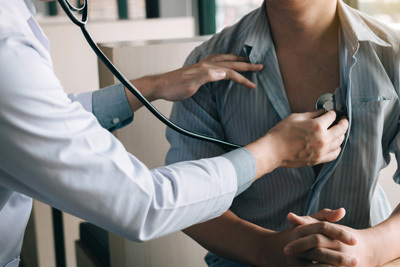Why is it important to seek medical care after an accident?

When you least expect it, accidents happen. Suddenly your ordinary day has been turned upside down—a slip and fall, a fender bender—injuries can and do happen every day in a number of ways to any of us. Though these incidents can range from relatively minor to catastrophic, they all share a common charge for the injured party: get a medical evaluation as soon as possible to determine what exactly has been injured and how to treat the issue for the best outcome. Why is this important? Let’s examine some of the most important reasons why.
LET THE PROFESSIONALS DETERMINE INJURY EXTENT
It’s natural to want to minimize to yourself the amount of injury you’ve sustained.”Oh, I’m fine,” you’ll protest. “A little ice and some aspirin and I’ll feel better by tomorrow.” Unless you’re suffered a broken bone or a serious gash, most of us want to believe the invisible injury that hurts inside but isn’t readily apparent is less serious than it may be. A classic case of this might be whiplash, where your neck sustains a trauma due to abrupt movement and typically results in pain, stiffness, and swelling inside of the ligaments.
Here are some of the common symptoms of injury you should be aware of:
- Fainting or confusion such as a concussion can bring on
- Slurred speech
- Any head or eye injury
- Difficulty breathing or chest pain
- Weakness or numbness on one side
- Serious burns
- Broken bones or dislocated joints
Our bodies react to trauma and pain signals by producing morphine-like hormones called endorphins. These natural painkillers our bodies produce work to mask the pain until your body and mind have had time to recover from the stress of an accident. It’s the reason many of us who have suffered a substantial injury don’t recall it being as painful as it will later become, once your body has had a chance to process the extent of the trauma. This natural painkiller effect also makes it impossible for us to know just how injured you really are until fully examined by a medical professional. In the case of internal bleeding, ignoring the need for evaluation can result in a much more serious injury impact and potentially even death.
BEING EVALUATED BY A MEDICAL EXPERT ESTABLISHES THE POST-INJURY TIMELINE AND SCOPE
It’s likely you will have standing for a personal injury case if you’ve been the unfortunate victim of an accident, so being able to have a diagnosis of injury and prescribed course of treatment is an essential component to establishing what is termed a causal connection to your injuries and setting the parameters of a personal injury claim. The official record from your medical professional of your evaluation and treatments is one of the best means of verifying the extent and nature of your injuries, and the timeline of care and rehabilitation of your treatment.
This record keeping is essential to your attorney should there be a personal injury case taken up on your behalf. Not only is rapid treatment better for your recuperation, but the process and medical bills can often form a large portion of the damages assessed in your claim.
This general checklist might prove useful if you find yourself on the unfortunate end of an accident. It’s by no means conclusive, but provides some basic guidelines for you while you are in a vulnerable and stressed state. It might be helpful to keep such a checklist in your wallet or car in the event you need it.
- Call the police to report the accident
- Exchange information with the other party when possible
- Take photographs, or get copies if others have taken them
- Get medical help as quickly as is possible
- Follow the medical attention prescribed
- Seek legal advice
As a premier provider of personal injury services, Omni works with attorneys to help people get the medical care they need. Omni’s extensive network of certified medical providers can assist individuals in their local area. For more information about how we can help you in your personal injury business, please contact us